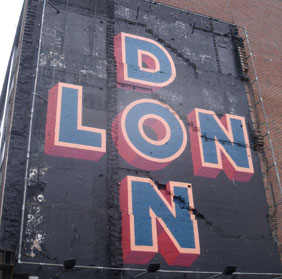Transport for London (TfL) seeks to minimise disruption caused by roadworks on London roads. Hence TfL introduced the Lane Rental Scheme; the aim, to ensure works promotors acknowledge the value of occupying road space, and work to minimise disruption to road users.
Penalties were introduced for failing to complete works on time as an incentive for contractors to maximise use of the road space and time. TfL sought automated monitoring of activity on work sites, to ensure that works promoters were adhering to agreed permitted hours and not exceeding deadlines.
Any technology needed to be flexible and re-deployable to cope with the constantly changing location of works, as well as being able to understand active and complex settings. This was all taken into consideration in the development of the Automatic Road Network Monitoring system (ARNM).
In the process of designing the automated activity monitoring scheme, TfL identified video analytics as a core component. This is because video analytics translates video into metadata, which can then be used to populate databases. This data can then form the basis for tracking activity on work sites.
TfL worked with video analytics product company Ipsotek, towards the design of the Automatic Roadwork Monitoring (ARNM). TfL had worked with Ipsotek before to deliver congestion monitoring for the capital which has assisted in congestion mitigation, and reduced average journey times. Ipsotek and TfL used products from network video company Axis Communications to create the ‘Smart camera’. Included in a single Axis enclosure is a high-end PTZ camera, video analytics card and 4G router. This allows for flexibility in the position of the camera, along with removing the need for a physical network connection. Instead, the camera only requires local power, with a secure connection over 4G by TfL’s communications supplier providing real time data to TfL servers. TfL integrated this data feed into its existing ‘Lane Rental Management’ system.
Using Ipsotek’s Scenario Based Detection Engine, TfL are able to remotely configure the video analytics software. TfL staff can receive automated alerts if works promoters are working outside permitted times, or if they are not making full use of the agreed works plans. Daily activity reports are also generated to show the scale and time of work. The set work plan can be seen compared to the amount of activity tracked on site – the red bars indicate the amount of activity recorded, green represents ‘no activity’ and the blue represents the approved working hours. This data is backed up by images from the camera to ensure TfL have access to the full depth of data, and can provide evidentiary images.
Bill Flind, Chief Executive of Ipsotek said: “We are delighted to have been chosen by TfL to work with them on this very innovative project, and we are proud that together we have achieved a solution that is repeatable and re-deployable, and one that can now be extended across one of the most challenging and complex traffic environments in the world. It is also extremely gratifying to know that Ipsotek’s technology is a key element in a system that can save time and reduce frustration for so many people living and working in London.”









